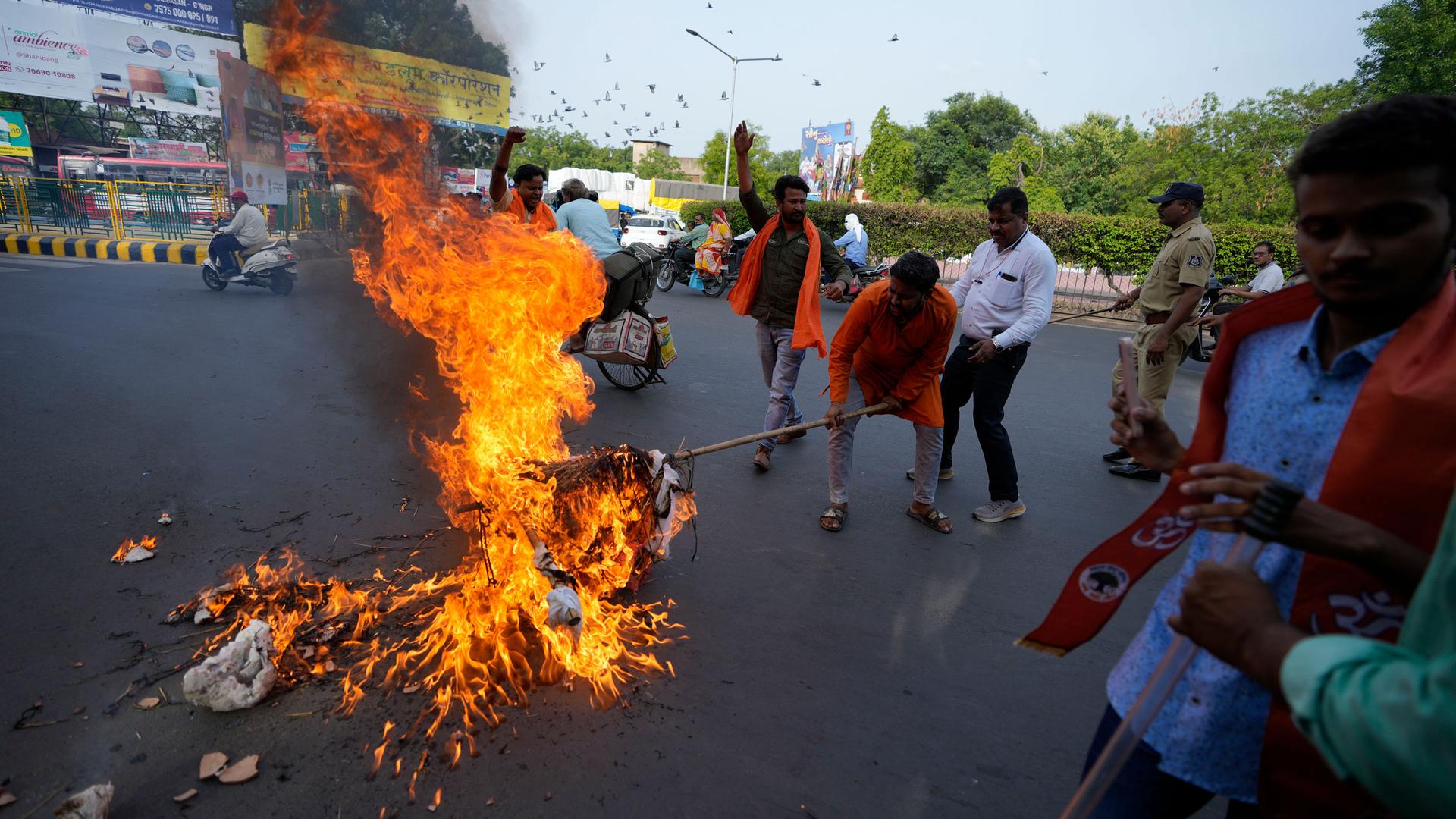On Thursday, thousands of people took to the streets after the brutal murder of Hindu tailor Kanhaiya Lal, in Udaipur.
Many protesters carried saffron flags — a holy color in Hinduism — calling for the death penalty for two Muslim men accused of beheading tailor Lal.
The incident has pushed religious tensions in India to a boiling point.
It started when two videos surfaced on social media on Tuesday: The first one shows Lal taking the measurements of a bearded Muslim man in his shop. A few seconds later, the man attacks Lal. Suddenly, there’s a commotion. The camera falls and Lal can be heard screaming in the background.
In the second video, two Muslim men claimed responsibility for the murder. They introduce themselves and describe how they beheaded Lal — essentially boasting about the murder. They also threatened to kill India’s prime minister, Narendra Modi.
The two men said that this was an “act of revenge” against Lal for insulting the Prophet Muhammad.
The tailor had allegedly shared a post on social media supporting Nupur Sharma, a member of Prime Minister Narendra Modi’s party who made derogatory remarks about the Prophet Muhammad and his wife last month. That incident led to a huge backlash from Muslim nations and sparked protests by Muslims in India, too.
“Religious polarization has been rising in India under Modi, who is seen as a Hindu nationalist leader.”
“Religious polarization has been rising in India under Modi, who is seen as a Hindu nationalist leader,” journalist Sushmita Pathak told The World’s Marco Werman.
Some of Prime Minister Modi’s most ardent supporters believe India should be a Hindu nation — not a secular state like it is now, she said.
Members of the Bharatiya Janata Party (BJP) often make anti-Muslim remarks and there have been a number of incidents and policies in recent years that have disproportionately affected Muslims — from mob lynchings and attacks on interfaith couples to arrests of prominent Muslim figures, Pathak said.
Authorities, however, are treating the murder as an act of terrorism. The National Investigation Agency, a high-level federal agency, has taken over the case. Both men in the video have been taken in for questioning. There were some reports linking one of them to an Islamist group in Pakistan, but Pakistan has denied that.
Some activists feel that investigations by the federal agency that involve Muslim figures have not been impartial.
“There are very real fears that this could push religious tensions beyond their breaking point. India is a tinderbox right now,” Pathak said.
In Udaipur, the airport has been on edge and the internet has been suspended as the government rushed for police reinforcement in anticipation of riots.
Lal’s funeral on Wednesday was attended by huge crowds.
On Thursday, thousands joined protests organized by several Hindu groups demanding justice for Lal and an end to what some call Islamist extremism in India.
Muslim groups have condemned the attack.
Hindu-Muslim tensions have existed in India for decades. But since Modi came to power in 2014, there’s a sense that it’s really coming very close to the breaking point.
Political scientist Neil London Sarkar said those who want to foment Hindu-Muslim tensions are actually going to use this incident.
“There’s political mileage to be gained out of every small event. It isn’t that we haven’t seen these kinds of events from time to time. It’s that today you can have a very local event, but it can have national implications,” he said.
Related: ‘We are demanding full decriminalization’: Sex workers in India rally for labor rights
